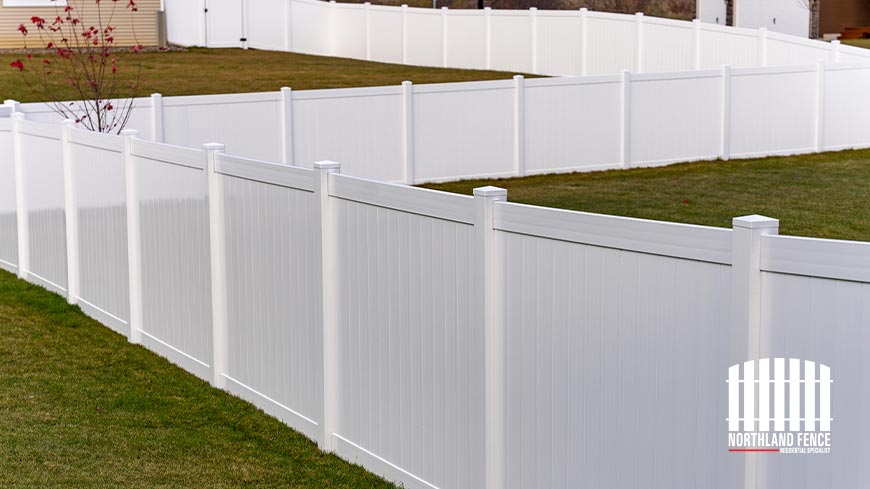Fencing can serve many purposes, from keeping your kids and pets in your yard, to keeping strangers out, to simply adding a nice boundary line between you and everyone else. They can also help enhance your property or help protect your garden from rabbits and other critters. But what about things bigger than that?
There are other animals that can be unwanted in your backyard, like raccoons, gophers, snakes, and even coyotes. Today we’re going to be looking at the last option: coyotes. What is the best fence to keep coyotes out? What other steps can you take to protect your property from them? Do you even need to worry about them at all?
Here at Northland Fence, we’ve been in the fence industry for over 15 years. Founded right here in Minnesota, we have lots of experience with all matters involving fencing, including what they can help protect you from. Our reviews speak for themselves, having the best rating in all of Minneanapolis. Let’s talk more about coyotes and how you can keep yourself and your property safe from them.
Why Do You Need a Coyote-Proof Fence?
Coyotes are native to almost every corner of North America, spanning all the way up to Alaska and down to parts of Mexico. With humans constantly expanding our homesteads and cities, it’s not uncommon to see coyotes within city limits. While the odds of this are lower in more densely populated areas, it’s never a zero percent chance.
If you live in the city, coyotes will be primarily looking for a food source. While you won’t have to worry about your kids looking like a snack to them, people who raise chickens or have small dogs, outdoor cats, or other small creatures like rabbits should be aware of the possibility of coyotes.
If you live in a more rural area, your odds of encountering them are a bit higher. Again, they won’t be likely to approach your house for no reason. If you have food left out, if something in your garbage smells good, or if you have smaller prey animals, knowing how to keep out a coyote might be important for you.
What Types of Fencing Work Best Against Coyotes?
Your best fencing option against coyotes is fences that can not be easily climbed over or dug under. It can also help to have a fence that isn’t as easy to see through. While coyotes do have a great sense of smell and hearing and could still potentially detect something like food scraps or chickens on your property, this can still be a big deterrent.
Height can also play an important role in keeping out coyotes. Like domestic dogs, coyotes can jump if they feel compelled to. Having a higher fence, usually five feet or more, can help ensure this isn’t possible. You should check with your city or county to know what their regulations regarding fence height as not everywhere allows fences over a certain measurement.
With that in mind, vinyl fencing can often be a great option. Not only does it normally come in a taller height, but it’s not climbable nor is it see-through.
Chainlink fencing can be a bit iffy. If not secured properly at the bottom, coyotes have been known to push under with ease or with minimal digging. They’re also one of the more climbable fence types.
Ornamental steel can be a solid choice as it’s not the easiest to climb, nor is it pliable enough to squeeze under or through, but it’s important to keep in mind the height of the fence if you decide to go with ornamental steel.
Is Barbed Wire Legal for Fencing in Minnesota
Many people might think that options like barbed wire could help properly deter predators like coyotes. While this may be true in some cases, unless you have an agricultural property, such as a cattle field, barbed wire is not allowed for use in residential properties throughout Minnesota. This would include adding it on top or bottom of your already existing fence.
The Legalities of Installing an Electrical Fence in Minnesota
What about electric fences in Minnesota? Are those allowed?
Just like barbed wire, electric fences are not allowed in the state of Minnesota for residential properties. Exceptions are sometimes made for fencing designed to keep cattle. Minnesota doesn’t allow these types of fencing due to the hazards they present.
Further Steps You Can Take To Coyote-Proof Property
Before we talk about the other steps you can take to help prevent or coyote-proof your yard, let’s discuss the ways you can tell if you have some night visitors hanging around.
Some of the common signs of coyote activity include:
- Bones and other animal remains
- Trash cans or other parts of your property being disturbed
- Scat (which often contains fur or bone chunks)
- Changes in behavior from your pet (due to coyote scent)
If you start to notice these signs, there are steps you can take beyond erecting a fence to help deter coyotes from your property.
Coyotes are scavengers and tend to only come into human-dense areas in search of food. This can include scraps from an open trash can, the bowl of cat food you left out for the neighborhood stray, and even small, furry companions. Make sure you keep any trashcans well secured and don’t leave out any pet food or scraps. This can also extend to bird feeders or open gardens.
Make sure you don’t leave pets out unsupervised, especially around dusk or early morning. If you have a cat that goes outdoors, it’s best to keep them inside for their safety. Additionally, if you have rabbits or chickens make sure you have secure fencing for them that goes at least a foot into the ground and also has a covering. Coyotes don’t often go after domestic animals, but the possibility exists.
Finally, adding things like motion lights on your property can also help deter coyotes. Because they use the cover of night to help them get around, a sudden light coming on can often spook them away.
Getting a Coyote-Proof Fence Installed by Northland Fence
If you’ve noticed signs of coyotes, or you simply want to make sure your property and family have extra protection, Northland Fence is here to help. Our team has worked all through Minnesota and is happy to travel to you to make sure you get the proper fencing you deserve.
We always want to ensure that our customers are treated right throughout the whole process. This means being upfront about costs, never springing sudden fees on you, and making sure we get the best deal on high-quality material so you save money on your purchase.
We believe in our work so much that we offer 10-year labor warranties on all fencing installations in addition to the material warranties which last a minimum of 15 years. Our team is trained fully in-house meaning we never hire out our installations to contractors. This means our installation crew knows our standards and the person who installs your fence from us might even be the one to come back and repair it should you ever need it.
We offer easy-to-use, online fencing tools if you wish to plan out your fence or work on getting an estimate. Our team is here and ready to help you get started on planning the fence of your dreams. We’ll happily answer any questions you may have, so feel free to give us a call at (763) 316-4881 to get started.
FAQs
How do you make a coyote-proof fence?
A good, coyote-proof fence shouldn’t be climbable, jumpable, or easily dug under.
Will a 6-foot fence keep coyotes out?
A 6-foot fence is tall enough to prevent coyotes from jumping over, but it’s important to make sure it can’t easily be dug under, either. The recommended depth is usually at least 1 foot underground.
What kind of fencing is for predator control?
Having a fence that is sturdy, not easy to climb or jump, and not easy to push under can greatly deter predators. It’s important, however, to make sure that you don’t further entice them into your property by leaving out easily accessible food, or by having small critters like rabbits, chickens, or even cats out at night in unprotected areas.


